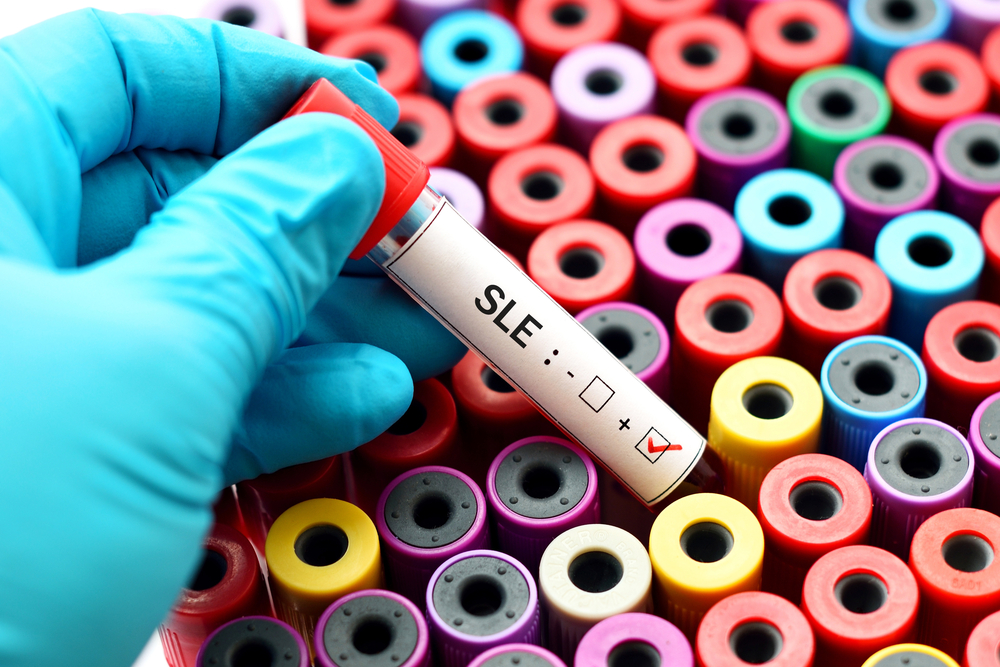DxTerity’s LIFT Study Supports Accuracy of Self-Reported Data in Lupus Patients

DxTerity Diagnostics’ LIFT study supports the use of social media to rapidly enroll lupus patients for clinical trials, as well as ensuring the accuracy of self-reported data and home-based collection of blood samples, according to the company.
The research supporting that assertion will be shown at the European League Against Rheumatism (EULAR) 2018 annual meeting, June 13-16, in Amsterdam, The Netherlands.
The first study absract, “Comparison of different type 1 IFN signatures demonstrates concordance in a real-world, home-monitored systemic lupus erythematosus cohort,” will be presented June 16 at 10:30 a.m. CEST.
The researchers evaluated the use of different type1 interferon (IFN) gene markers, or genes that would become active (produce proteins) in the presence of IFN, for the classification of systemic lupus erythematosus (SLE) patients. Research shows IFN correlates with SLE severity and anti-IFN therapies are being assessed in clinical trials.
This study recruited 687 participants from social media with self-reported SLE, whose medical records were analyzed. Participants also completed a questionnaire regarding their disease and used the DxCollect fingerstick collection kit to provide three blood samples over about six weeks.
The samples then were tested with a gene expression assay containing 11 IFN response genes, mainly from the IFN-gamma pathway.
Results revealed that expression of 10 of the 11 genes was highly linked to one another. They also showed that the four genes, IFI27, IFI44, IFI44L, and RSAD2, a signature frequently used to establish IFN expression, identified 36.5 percent of the patients as IFN high.
The data also show that three other IFN signatures had similar results, with subjects assigned to the same IFN subgroup more than 90 percent of the time.
“The use of social media to engage patients directly along with self collection of blood samples provides new opportunity for testing clinical study participants and potentially patients without requiring an office visit,” the researchers wrote.
DxTerity also will present “The LIFT study’s direct-to-patient design provides reliable self-reported data from lupus patients,” on June 15 at 11:45 a.m. CEST.
This study compared patient-reported information with medical records as well as genetic testing. Patients’ samples also were collected through the company’s fingerstick blood samples.
The research assessed the accuracy of self-reported data from a subset of participants in the LIFT study, a Direct to Patient (D2P) clinical study. The authors contend this type of research may “revolutionize health research by enabling population scale studies without the cost and complexity of traditional multisite trials.”
The patients’ data on current lupus and steroid medications were summarized by an independent physician.
A total of 327 of 1,043 participants completed all required information within the first six weeks. Thirty-seven (35 women) were randomly selected for medical record review (MRR). Their average age was 44 years. Patients’ diagnosis was confirmed by the MRR directly or by an independent physician using the medical record.
Results revealed that although several patients reported medications not confirmed in their medical records, there was an 88 percent overall agreement between self-reported and MRR for each of the medications. The scientists attributed some of the discrepancies to the fact that the date of prescription in the MRR was outside the 30-day window of the questionnaire.
“Using a D2P study design, the resulting [self-reported] data corresponded well with the MRR for subject age, lupus diagnosis, and lupus medications,” they wrote.
“The LIFT Study shows that a D2P study design is an effective method to rapidly enroll lupus patients and decrease study costs while collecting reliable self-reported data,” the investigators considered.
“We are committed to developing tools for rheumatologists to improve lupus disease management,” Bob Terbrueggen, PhD, DxTerity’s CEO and founder, said in a press release. “From-home access to patients with lupus and regular monitoring for biological changes may provide real-world insights into how to personalize care.”






